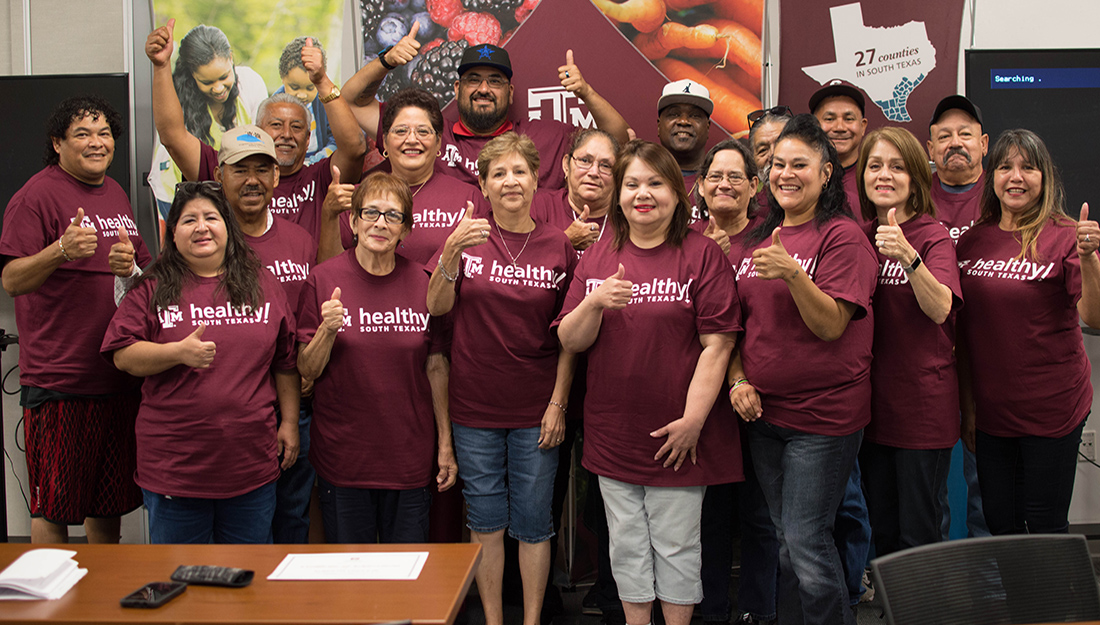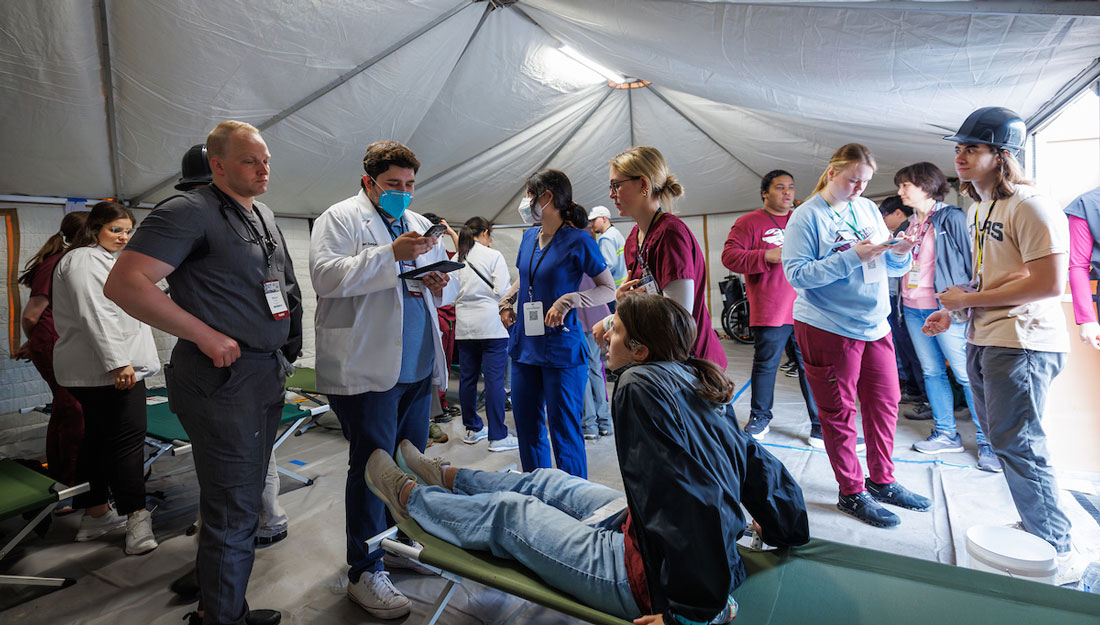- Lindsey Hendrix
- Public Health, Research, Show on VR homepage
Improving diabetes outcomes for people living in South Texas
Study of a Texas A&M diabetes education program shows participants achieved and maintained reduction in average blood sugar levels

Attendees of the A1C Champion breakfast celebrate their success in lowering their A1C to healthier levels.
A new study led by the Texas A&M Health Center for Population Health and Aging describes how a Texas A&M diabetes self-management education program has made a clinical difference for people living with diabetes in South Texas.
The southern region of Texas is among the nation’s highest in chronic disease rates. Rates of diabetes are especially high in South Texas, with an estimated 30 percent in some counties along the Texas-Mexico border. In an effort to improve the health and quality of life for people who live in this area, the Texas A&M University System launched the Texas A&M Healthy South Texas pilot program in 2015. The program—which is now expanding statewide as the Healthy Texas initiative—combines the clinical and public health expertise of the Texas A&M University Health Science Center (Texas A&M Health) with the statewide network of Texas A&M AgriLife Extension Service to address the highest impact chronic and acute diseases in the region, including diabetes.
Managing type 2 diabetes is essential to preventing or delaying the numerous health risks associated with the disease, including blindness, heart disease, kidney failure, stroke and loss of toes, feet or legs. According to the American Diabetes Association (ADA), diabetes self-management education and support has been shown to be a cost-effective way to reduce hospital admissions and readmissions, as well as estimated health care costs over a lifetime related to a lower risk for complications.
Marcia G. Ory, PhD, along with colleagues from the Texas A&M Health Coastal Bend Health Education Center, the Texas A&M Health South Texas Center and the University of Central Florida, evaluated outcomes of 8,664 adults with diabetes who took part in a 12-month diabetes self-management education program delivered through Healthy South Texas. The program that was evaluated was designed for those who have type 2 diabetes or prediabetes. The program involved eight hours of in-person workshop education from a health professional (registered nurse, registered dietitian, pharmacist or certified diabetes educator), and quarterly follow-up visits for one year.
Utilizing elements of the RE-AIM (Reach, Effectiveness, Adoption, Implementation and Maintenance) Planning and Evaluation framework, the researchers analyzed questionnaires, clinical data and administrative records of the program’s large and diverse population of participants. They observed statistically significant reductions in A1c levels (average blood glucose, or sugar, levels over the past three months) among the participants at their three-month follow-up. These reductions were sustained at follow-up sessions six, nine and 12 months after engagement in the diabetes education program.
“This study is especially significant because it demonstrates the ability to positively impact the lives of large numbers of individuals at risk for or living with diabetes by reducing and maintaining lower average blood sugar levels,” Ory said. “It revealed that even those with the highest initial A1c levels were able to better manage their diabetes. The establishment of strong clinical and community partnerships was an essential element in the ability to disseminate the program widely.”
Diabetes education program participants were recruited from the 27-county Healthy South Texas service area, which spans from Brazoria County (Angleton) in the north to Cameron County (Brownsville) in the south. The program is recognized by the ADA as following the National Standards for Diabetes Self-Management Education and Support (DSMES).
Offered in both English and Spanish, the 8-hour in-person workshop section of the program includes discussion and hands-on learning about what diabetes is, blood glucose monitoring, carbohydrate counting, meal planning, reading food labels, medication and insulin administration, preventing diabetes complications, exercise, stress management and goal setting. One-on-one follow-up sessions are conducted to check in with participants, go over their current A1c level and discuss goals and self-management strategies.
“Diabetes self-management education is the cornerstone of providing knowledge and tools to help people who have diabetes lead healthier lives,” said Starr Flores, MBA, director of the Coastal Bend Health Education Center and co-author of the study. “We are thankful that the Healthy South Texas initiative has given us the opportunity to reach so many people in South Texas.”
Media contact: media@tamu.edu


